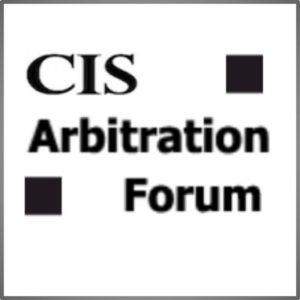Kazakhstan Defeats Enforcement of Investment Arbitration Award Against National Bank Assets
 The Svea Court of Appeal, on June 17th 2020, handed down its decision in the Republic of Kazakhstan v Stati et al annulling orders of attachment against assets of the National Bank of Kazakhstan. The court ruling is the latest development in the protracted process of enforcement of an SCC investor-state award granted against Kazakhstan under the Energy Charter Treaty.
The Svea Court of Appeal, on June 17th 2020, handed down its decision in the Republic of Kazakhstan v Stati et al annulling orders of attachment against assets of the National Bank of Kazakhstan. The court ruling is the latest development in the protracted process of enforcement of an SCC investor-state award granted against Kazakhstan under the Energy Charter Treaty.
The dispute lasted for a decade, with enforcement battle now taking place in several jurisdictions. The court examined the issue of sovereign immunity under the customary international law in the context of enforcement of arbitral awards against the property of central banks.
The Court affirmed that the National Bank’s assets met the restrictive exception to immunity from execution that provides general protection of state property from attachment. The ruling illustrates the insurmountable barriers the private parties in investor-state arbitrations frequently have to overcome at the enforcement stage.
Anatolie Stati v Republic of Kazakhstan: A Brief Overview of the Underlying Dispute
The underlying dispute arose out of an oil investment went sour in 2010, when the Kazakh governmental agencies seized two oil and gas fields near Mangistau region, in the southwest of Kazakhstan.
Mr Anatolie Stati, a citizen of Moldova and Romania, co-owned with his son (“Investors“) two Kazakh corporations that invested in the exploration of oil and gas fields in Kazakhstan. Substantial investments transformed the previously fallow Borankol and Tolkyn fields into significant producers of oil, gas and condensate. By 2010, investors’ company had over 100 operational wells, that effectively made it the fourth-largest gas producer in Kazakhstan.
Investors enjoyed eight years of productive relations with the Kazakh government, making investments in excess of US $1.1 billion for extensive exploration of oil and gas fields and construction of a refinery. In the late 2000s, however, government pressure led investors to abandon the business venture. Investors alleged that they became a target of threats and harassment from the state, that sought the ultimate goal to take over the fields at an undervalue.
Investors’ affiliated corporations had to undergo overzealous inspections by state authorities, the state further imposed back tax obligations. Several high-level managers and key executives got imprisoned and fined for allegedly operating a pipeline without a license. Following the imposition of administrative penalties and criminal charges, Kazakhstan terminated investors’ subsoil use contracts and seized their assets, transferring oil fields to KazMunayGas, a state-owned company.
In an effort to recover damages, Moldovan investors submitted the dispute to the Arbitration Institute of Stockholm Chamber of Commerce according to Art.
online pharmacy https://bergenderm.com/wp-content/uploads/2022/09/jpeg/lipitor.html no prescription drugstore
26(4)(c) of the Energy Charter Treaty. In 2013, the arbitral tribunal found Kazakhstan to have been liable for breaching the treaty, primarily its fair and equitable treatment provisions pursuant to Art. 10 (1) of the Energy Charter Treaty.
Winning the case does not necessarily mark the end of the fight
Shortly after the award was issued, Kazakhstan sought to set it aside in Sweden, the seat of arbitration. As a legal ground for the request for setting aside, Kazakhstan argued, among other things, that investors procured the award by fraud. As previously reported at the CIS Arbitration Forum, the Svea Court of Appeal dismissed Kazakhstan’s request as unsubstantiated, and the Supreme Court of Sweden eventually upheld the award without examining the substance of Kazakhstan’s fraud allegations.
To date, the investors have initiated multiple enforcement proceedings in various jurisdictions as a result of Kazakhstan’s continued refusal to honor its payment obligations under the award. The enforcement proceedings have entailed a series of satellite disputes including attachment and garnishment applications, and as a corollary, ensuing litigations as to which assets should be covered, in which jurisdictions and under which agreements.
The Svea Court on enforcement of the arbitral award against the property of National Bank
In the case at hand, Moldova’s most affluent investors secured the attachment in aid of continued efforts to enforce the award in Sweden, the seat of arbitration. Investors targeted assets of the National Bank of Kazakhstan, whilst the Republic of Kazakhstan, in turn, invoked state immunity doctrine as a shield to defeat the bank’s assets.
In simple words, the court had to decide on two issues: What is the current practice in relation to sovereign immunity: whether to apply absolute immunity or restrictive immunity, what is the standard regarding the post-judgment measures of constraint in general? Whether the property of National Bank is covered by state immunity?
online pharmacy https://bergenderm.com/wp-content/uploads/2022/09/jpeg/fluoxetine.html no prescription drugstore
There is no enacted international treaty in the field of state immunity. On the international law level, state immunity is thus governed by customary international law. Notably, the court cites the United Nations Convention on Jurisdictional Immunities of States and Their Property, which has not yet entered into force, as the clearest expression of the states’ prevailing understanding of state immunity, and as a codification of applicable customary international law on state immunity.
The court noted that customary international law distinguished between sovereign acts by states, which usually enjoy immunity, and their private law acts and acts of commercial nature, which most often do not.
online pharmacy https://bergenderm.com/wp-content/uploads/2022/09/jpeg/lasix.html no prescription drugstore
As such, according to the restrictive theory of immunity, the state’s commercial transactions or private law acts do not typically enjoy immunity. Despite wide acceptance of the restrictive theory of state immunity, substantial disharmony exists in its application.
The court further emphasized that immunity from jurisdiction is distinct from immunity from execution. Immunity from execution comprises measures of constraint directed against property of the foreign state either for the purpose of enforcing judgments or for the purpose of pre-judgment attachment. Both types of immunity are subject to a commercial exception, but the exception generally applies more narrowly with regard to execution.
For post-judgment measures of constraint to be allowed, the court indicated that the property must be specifically in use or intended for use for other than governmental non-commercial purposes and must be located in the territory of the forum state. Post-judgment measures of constraint may only be taken against property that has a connection with the entity against which the proceeding has been directed.
The Court of Appeal finds that the National Bank, as regards its constitution and function, is a central bank of a State, which assets must be accorded immunity
The rules on the immunity from execution of central banks vary significantly between different jurisdictions. Under the UN Convention on Jurisdictional Immunities of States, immunity is provided in principle for all such central bank or state assets held or managed by the central bank. In examining whether the National Bank of Kazakhstan was a central bank to accord immunity, the Court of Appeal outlined the following determining factors: constitution and functions of the institution.
The Court found that the state of Kazakhstan has appointed the National Bank as its central bank and that the operations of the National Bank were governed by Kazakhstani law. The Kazakhstani law on the National Bank stipulates that the National Bank shall be subordinated to the President of Kazakhstan and that the state holds its capital. Further, the court also observed that the Bank carried out the state’s monetary policy, ensured the function of the payment system, regulated Kazakhstani currency and supervised the financial system in general, whilst legal literature on international law describes such functions as typical for a central bank.
The Svea Court of Appeal took the view that the assets of the National Bank of Kazakhstan must enjoy state immunity in the case at hand.
Concluding remarks
The holistic enforcement strategy adopted by the investors in the case at hand highlights veritable obstacles encountered by successful parties in enforcing arbitral awards against the states’ property. The most notable hurdle faced by private parties attempting to enforce their contractual rights against the states’ assets is the defense of sovereign immunity. In most instances, the defense becomes a shield that effectively prevents execution.
The present case demonstrates the importance of making the right choice of assets and jurisdictions in which to seek the enforcement of the award against the state. As the rules on the immunity from execution of states’ assets vary significantly between different jurisdictions, the wise choice might help the party to surmount the defense of state immunity.









